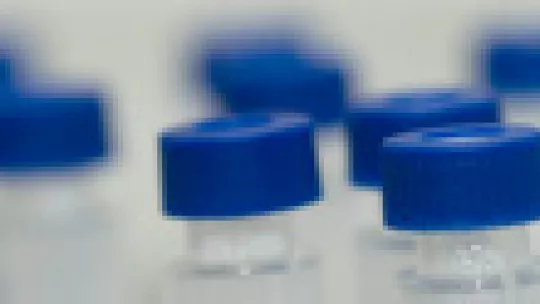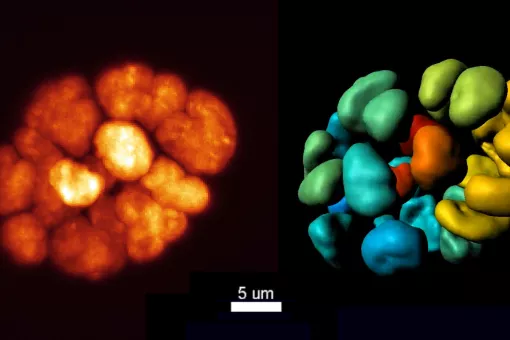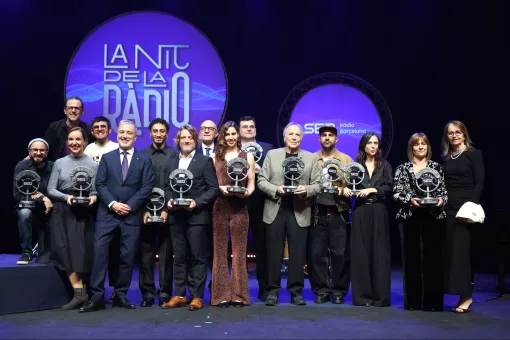Images
Start-up of a 5-year European project that seeks to tackle the challenge of developing a type of oral medicine that can pass through the digestive tract intact.
If successful, the TRANS-INT consortium will contribute to improving the treatment of chronic diseases, such as diabetes, and pain.
The researcher Ernest Giralt, an expert in the design of peptides and proteins with the capacity to cross biological barriers, forms part of a macro-consortium that involves 17 institutions in Europe.
Although the oral administration of drugs is often the most suitable option for patients, most proteins and peptides —the latter small proteins— designed to treat diseases cannot be administered via this route. The main problem is that the gastrointestinal tract though which these large compounds pass impedes their transport. The digestive system breaks them down into small parts, thereby cancelling out their therapeutic action. The European project TRANS-INT (New oral nanomedicines: transporting therapeutic macromolecules across the intestinal barrier), part of the VII Framework programme of the European Union, will tackle this challenge. It aims to achieve the rational design of oral nanomedicines that are safe, inexpensive and efficient.
“The availability of peptides that can be taken orally would considerably improve the treatment of chronic diseases such as diabetes and rheumatoid arthritis. If these disorders could be treated orally, the problems associated with injected drugs would be avoided, and we could probably better control the therapeutic doses”, explains Ernest Giralt, coordinator of the Chemistry and Molecular Pharmacology Programme at the Institute for Research in Biomedicine (IRB Barcelona) and senior professor of the University of Barcelona. Dr. Giralt, head of the Design, Synthesis and Structure of Peptides and Proteins Lab at IRB Barcelona, and the associate researcher, Dr. Meritxell Teixidó, form part of the macro-consortium TRANS-INT, which involves 17 European members, including universities, research centres and companies, with experts in nanopharmaceutical technology, biopharmacy, organic chemistry, immunology, physiology and pharmacology.
Professor Giralt is one of the leading international authorities in the design and development of nanotransporters with the capacity to cross biological barriers, such as the blood-brain barrier, to transport drugs into the brain, and the gastro-intestinal barrier. Expertise in the latter is now supporting TRANS-INT: “our task within this project is to design and prepare peptides that can serve as shuttles to carry these kinds of drugs across the intestinal barrier”, explains the researcher Meritxell Teixidó.
After more than twenty years of study, the design of nanotransporters has until now been based mainly on the traditional knowledge of biological barriers acquired through the “assay-error” method. According to researchers involved in the project, to make breakthroughs in this field it is crucial to understand the behaviour of nanotransporters in the biological system from a systematic viewpoint and in depth. This explains the motto of the consortium is: “Understand the barrier, understand the transporter”. TRANS-INT, which will last for 5 years, is coordinated by Prof. María José Alonso, from the University of Santiago de Compostela (USC).
About IRB Barcelona
The Institute for Research in Biomedicine (IRB Barcelona) pursues a society free of disease. To this end, it conducts multidisciplinary research of excellence to cure cancer and other diseases linked to ageing. It establishes technology transfer agreements with the pharmaceutical industry and major hospitals to bring research results closer to society, and organises a range of science outreach activities to engage the public in an open dialogue. IRB Barcelona is an international centre that hosts 400 researchers and more than 30 nationalities. Recognised as a Severo Ochoa Centre of Excellence since 2011, IRB Barcelona is a CERCA centre and member of the Barcelona Institute of Science and Technology (BIST).





